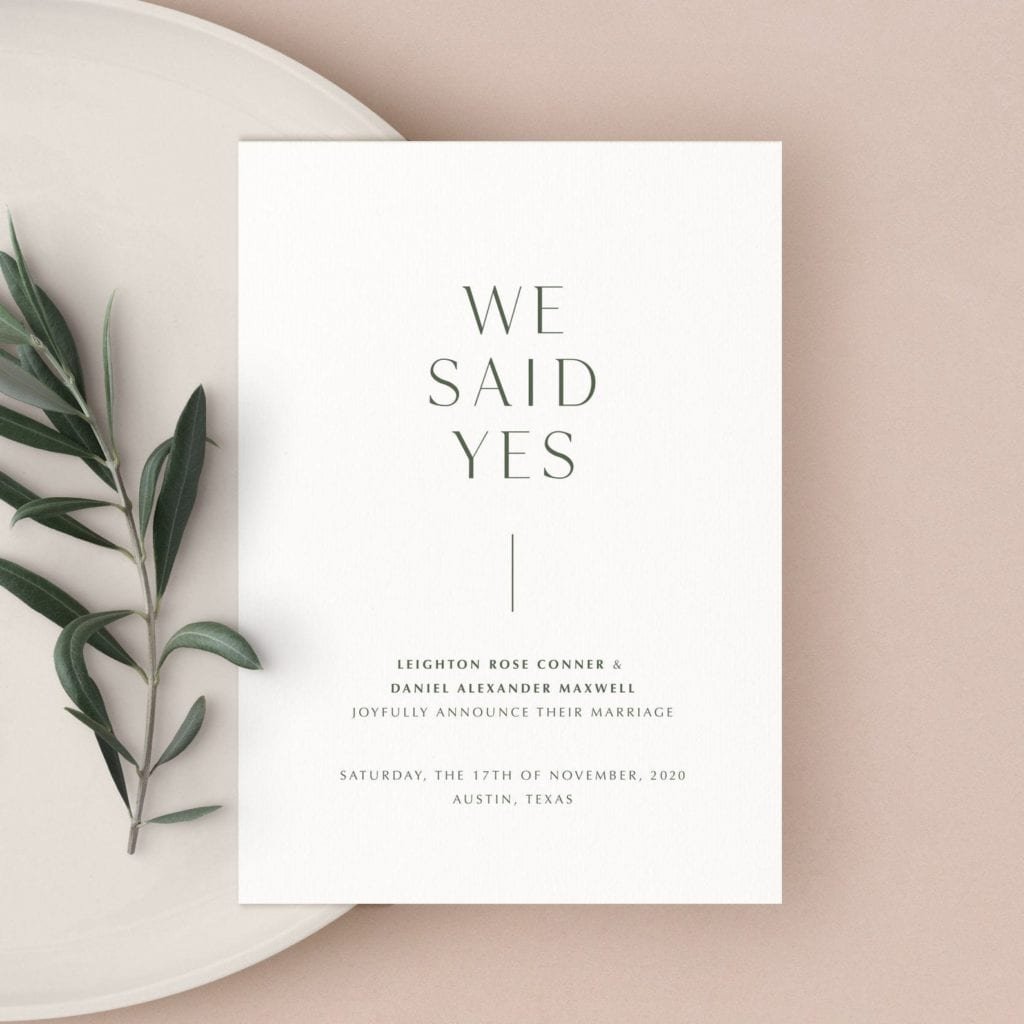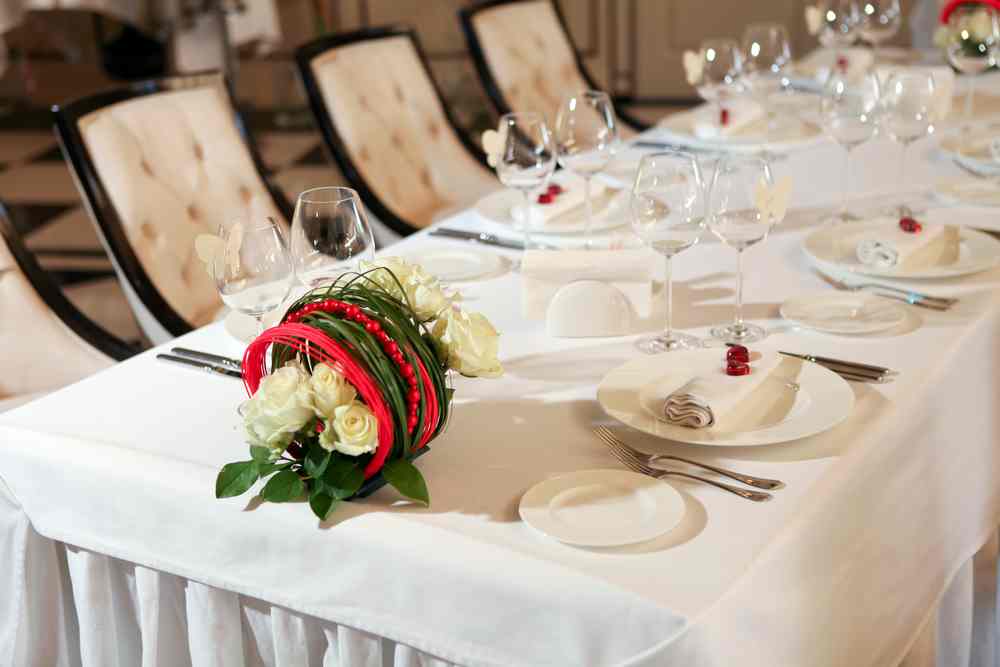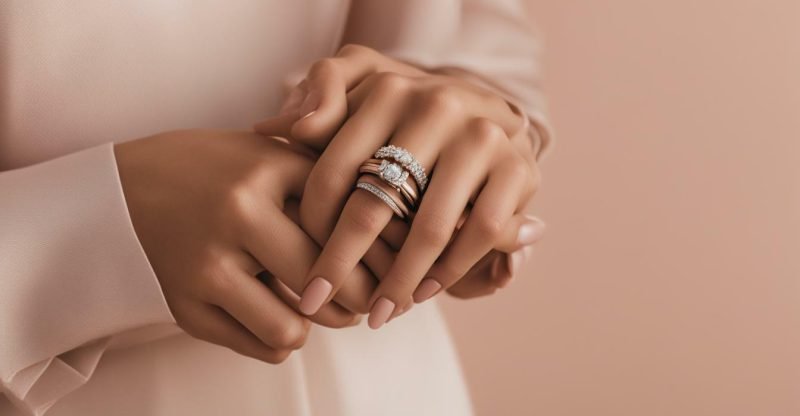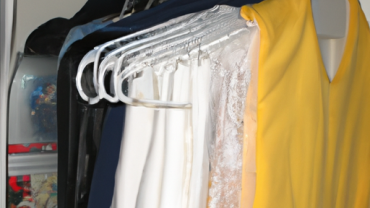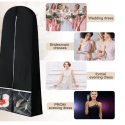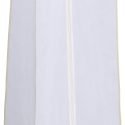Learn About Hypoallergenic Wedding Rings for Allergy Prone Brides and Grooms.
If you or your partner have allergies and are looking for wedding rings that won’t cause skin irritation, hypoallergenic wedding rings can be the perfect solution. These rings are designed specifically for individuals with sensitive skin, offering a comfortable fit and allergy-friendly options. Allergies can be triggered by soap or other materials trapped under the ring, as well as by an allergy to the metal itself. By choosing hypoallergenic wedding rings, you can ensure that your special day is free from any discomfort or irritation.
Key Takeaways:
- Hypoallergenic wedding rings are a great choice for allergy-prone brides and grooms.
- These rings are designed to be safe and comfortable for individuals with sensitive skin.
- Common metal allergies include nickel, copper, cobalt, and chromium.
- Hypoallergenic options include titanium, platinum, tungsten, black zirconium, ceramic, and silicone.
- It is important to find a wedding band that is both stylish and hypoallergenic.
Understanding Allergies and Wedding Rings
Allergies to wedding rings can be caused by various factors, including the metal used, such as nickel, and the potential for trapped irritants to cause skin reactions. It is essential to understand the relationship between allergies and wedding rings to make an informed choice when selecting a hypoallergenic option.
Common metal allergies associated with wedding rings include nickel, copper, cobalt, and chromium. These metals can trigger allergic reactions in individuals with sensitive skin, resulting in irritation, rashes, and dermatitis. For allergy-prone brides and grooms, opting for hypoallergenic jewelry made from high-quality metals and materials can significantly reduce the risk of experiencing adverse skin reactions.
One popular hypoallergenic metal option is titanium. Titanium is not only durable but also lightweight, making it an ideal choice for those with sensitive skin. Another hypoallergenic option is platinum, although it tends to be more expensive. Sterling silver is generally considered hypoallergenic, but it can still cause reactions in some cases. Additionally, alternatives like tungsten, black zirconium, ceramic, and silicone provide stylish and hypoallergenic options for wedding rings.
Choosing a wedding band that is both safe and comfortable to wear is crucial. By selecting a hypoallergenic ring, individuals can enjoy the beauty of their wedding band without the worry of skin irritation. It is important to consider factors such as the metal used, the potential for trapped irritants, and personal preferences when making a decision. With the right hypoallergenic wedding ring, brides and grooms can celebrate their special day with peace of mind and comfort.
The Importance of Hypoallergenic Wedding Rings
Opting for hypoallergenic wedding rings ensures a comfortable and irritation-free experience, especially for individuals with sensitive skin. Allergies to wedding rings can arise from various factors, such as soap or other materials trapped under the ring, or an allergic reaction to the metal itself. To avoid these issues, it is essential to choose hypoallergenic jewelry that uses high-quality metals and materials that are less likely to trigger allergic reactions.
One popular hypoallergenic metal option for wedding rings is titanium. Not only is titanium durable, but it is also lightweight, making it a practical choice for everyday wear. Another hypoallergenic metal to consider is platinum, although it may be more expensive. Platinum is known for its hypoallergenic properties and is a luxurious option for those seeking an allergy-friendly wedding ring. Sterling silver is generally hypoallergenic, but it can still cause reactions in some cases, so it is important to test it beforehand.
Aside from traditional metals, there are also alternative hypoallergenic materials to explore. Tungsten, black zirconium, ceramic, and silicone are all options worth considering. These materials not only offer hypoallergenic qualities but also provide unique styles and aesthetics. Couples can find the perfect hypoallergenic wedding ring that suits their preferences, ensuring both comfort and style on their special day.
Hypoallergenic Wedding Ring Options:
| Material | Advantages |
|---|---|
| Titanium | Durable and lightweight. |
| Platinum | Premium and hypoallergenic. |
| Sterling Silver | Generally hypoallergenic, but test for reactions. |
| Tungsten | Strong and scratch-resistant. |
| Black Zirconium | Unique and contemporary style. |
| Ceramic | Lightweight and resistant to scratches. |
| Silicone | Flexible and comfortable for active lifestyles. |
By selecting hypoallergenic wedding rings, individuals with sensitive skin can enjoy their special occasion without worrying about skin irritation or discomfort. Whether choosing a traditional metal or opting for an alternative material, hypoallergenic options provide a safe and stylish solution for couples looking to exchange rings that are both beautiful and gentle on the skin.
Common Metal Allergies
Nickel, copper, cobalt, and chromium are among the most common metals that can cause allergic reactions, making it essential to choose hypoallergenic materials for wedding rings. These metals are often used in the production of traditional wedding rings and can lead to skin irritation, redness, itching, and rashes for those with metal allergies. If you have experienced any allergic reactions to jewelry or have sensitive skin, it is important to opt for hypoallergenic rings that are designed to minimize the risk of an allergic response.
Table: Common Metal Allergies
| Metal | Allergenic Properties |
|---|---|
| Nickel | One of the most common causes of allergic contact dermatitis. Present in many alloyed metals used in jewelry. |
| Copper | Can cause skin discoloration and irritation, especially when oxidized. |
| Cobalt | Many cobalt alloys can cause allergic reactions, including skin rashes and eczema. |
| Chromium | Known to cause allergic contact dermatitis, especially in individuals with prolonged exposure. |
When choosing hypoallergenic jewelry, consider metals and materials that are free from these allergenic properties. Titanium is a popular choice due to its durability, lightweight nature, and hypoallergenic properties. Another hypoallergenic option is platinum, which is highly resistant to corrosion and less likely to cause skin irritations. Sterling silver is generally considered hypoallergenic but may still cause reactions in some individuals due to trace amounts of other metals used in its production.
For those looking for alternative hypoallergenic materials, options such as tungsten, black zirconium, ceramic, and silicone are available. These materials offer unique styles and characteristics while minimizing the risk of allergic reactions. It is important to find a wedding ring that not only suits your style but is also safe and comfortable to wear without causing irritation or discomfort.
Hypoallergenic Metal Options
There are several hypoallergenic metal options to choose from when selecting a wedding ring, including titanium, platinum, tungsten, white gold, alloy, and palladium. Each metal has its own unique characteristics and benefits, allowing you to find the perfect hypoallergenic ring that suits your style and needs.
| Metal | Characteristics |
|---|---|
| Titanium | Durable and lightweight, perfect for those with an active lifestyle. Titanium is resistant to scratching and corrosion, making it a popular choice for hypoallergenic wedding rings. |
| Platinum | Known for its elegance and durability, platinum is a hypoallergenic metal that is resistant to tarnishing. It is a symbol of luxury and is often used in high-end jewelry. |
| Tungsten | Extremely durable and scratch-resistant, tungsten is an excellent choice for those looking for a long-lasting wedding ring. It has a unique and modern appearance, making it a popular choice among couples. |
| White Gold | White gold is a classic and versatile option for hypoallergenic wedding rings. It is created by mixing pure gold with other white metals, such as nickel or palladium, to achieve its color. |
| Alloy | An alloy is a combination of different metals, such as gold and copper or gold and silver. It provides a unique appearance and can be customized to your preferences. |
| Palladium | Palladium is a precious metal that is similar in appearance to platinum but at a lower cost. It is known for its strength, durability, and hypoallergenic properties. |
These hypoallergenic metal options offer a wide range of choices for individuals with sensitive skin. Whether you prefer a lightweight and durable ring like titanium or the timeless elegance of platinum, there is a hypoallergenic metal that will suit your style and provide a comfortable fit.
Considerations for Choosing a Hypoallergenic Metal
When selecting a hypoallergenic wedding ring, it is important to consider factors such as durability, style, and personal preferences. Titanium and tungsten are known for their exceptional durability, making them ideal for individuals with an active lifestyle. Platinum offers a luxurious and timeless appeal, while white gold provides a classic and versatile option.
It is also important to note that some individuals may still have sensitivities to certain metals, even if they are considered hypoallergenic. If you have had allergic reactions to specific metals in the past, it may be best to avoid them altogether and opt for alternative materials like ceramic, black zirconium, or silicone.
Ultimately, the key to choosing the perfect hypoallergenic wedding ring is to consider your personal preferences, budget, and any known metal sensitivities. By selecting a hypoallergenic option, you can enjoy the beauty and symbolism of a wedding ring without the worry of skin irritation or allergic reactions.
Alternative Hypoallergenic Materials
In addition to hypoallergenic metals, there are alternative materials like ceramic, rose gold, yellow gold, wood, silicone, and black zirconium that offer hypoallergenic properties for wedding rings. These materials not only provide a stylish alternative to traditional metals but also eliminate the risk of allergic reactions for individuals with sensitive skin. Let’s explore each of these options:
| Material | Characteristics |
|---|---|
| Ceramic | Durable and scratch-resistant, available in various colors |
| Rose Gold | Warm and romantic, a timeless choice for elegant wedding bands |
| Yellow Gold | Classic and luxurious, available in different karat weights |
| Wood | Naturally hypoallergenic, offers a unique and organic look |
| Silicone | Flexible, lightweight, and comfortable for everyday wear |
| Black Zirconium | Durable and striking, perfect for modern and edgy designs |
These alternative materials are designed to be safe for individuals with allergies, ensuring that you can wear your wedding ring without any discomfort. Whether you prefer the elegance of rose gold, the natural beauty of wood, or the modern appeal of black zirconium, there is a hypoallergenic material that suits your style and preferences.
Choosing the Perfect Hypoallergenic Wedding Ring
When selecting an alternative hypoallergenic material for your wedding ring, there are a few factors to consider. First, ensure that the material is of high quality and will withstand everyday wear. Next, make sure the ring is the right size and fits comfortably on your finger. Lastly, think about the design and style that best represents your personality and complements your engagement ring, if you have one.
By choosing a hypoallergenic material for your wedding ring, you can enjoy the beauty and symbolization of this cherished piece of jewelry without worrying about skin irritation or allergic reactions. Whether you opt for ceramic, rose gold, yellow gold, wood, silicone, or black zirconium, rest assured that your hypoallergenic wedding ring will be a lasting reminder of your love and commitment.
Summary
- Alternative hypoallergenic materials like ceramic, rose gold, yellow gold, wood, silicone, and black zirconium offer a safe and stylish option for wedding rings.
- These materials eliminate the risk of allergic reactions for individuals with sensitive skin.
- Ceramic is durable and scratch-resistant, rose gold exudes elegance, yellow gold offers a classic look, wood provides an organic aesthetic, silicone is flexible and lightweight, and black zirconium adds a modern touch.
- When choosing a hypoallergenic wedding ring, consider quality, comfort, and design.
Choosing the Right Hypoallergenic Wedding Ring
When selecting a hypoallergenic wedding ring, it is essential to consider factors like durability, prevention of ring rash, diverse options for men, and the choice of metals that are less likely to cause allergic reactions. The last thing you want is to experience discomfort or irritation on your special day. By choosing a ring that is hypoallergenic, you can ensure a comfortable and stylish wedding without worrying about allergic reactions.
Hypoallergenic rings for men are designed to be durable and long-lasting, so you won’t have to worry about your ring losing its shine or shape over time. These rings are made from high-quality materials that are less likely to cause skin irritation, such as titanium, platinum, tungsten, or black zirconium. These metals are not only hypoallergenic but also offer a modern and stylish look that complements any wedding ensemble.
When it comes to ring metals, it is important to choose options that are known to be hypoallergenic. Titanium is an excellent choice as it is lightweight, strong, and resistant to corrosion. Platinum is another great option, although it can be more expensive. Both titanium and platinum are hypoallergenic and suitable for individuals with sensitive skin. Alternatively, you can also consider tungsten, black zirconium, ceramic, or silicone rings, which are all hypoallergenic and offer a unique and stylish alternative to traditional metals.
Table: Hypoallergenic Metal Options
Here is a table summarizing the advantages and characteristics of popular hypoallergenic metal options:
| Metal | Advantages |
|---|---|
| Titanium | Lightweight, strong, corrosion-resistant |
| Platinum | Durable, luxurious, hypoallergenic |
| Tungsten | Scratch-resistant, stylish |
| Black Zirconium | Unique, sleek, hypoallergenic |
| Ceramic | Lightweight, hypoallergenic, scratch-resistant |
| Silicone | Flexible, comfortable, hypoallergenic |
By choosing a hypoallergenic wedding ring, you can ensure that your special day is free from the discomfort and irritation that can be caused by traditional metals. Whether you opt for a durable titanium band, a luxurious platinum ring, or a unique alternative like black zirconium or ceramic, you can find a hypoallergenic option that suits your style and keeps your skin happy. After all, your wedding ring should be a symbol of love and commitment, not an uncomfortable reminder of allergies.
The Role of Nickel in Allergies
Nickel is a common culprit for allergies related to wedding rings, making it crucial to choose nickel-free options to avoid potential contact dermatitis and other metal allergies. Many people are unaware of their nickel allergy until they experience symptoms, such as redness, itching, swelling, or a rash, after wearing nickel-containing jewelry. These symptoms can range from mildly irritating to severe and can persist for days or even weeks. By selecting nickel-free wedding rings, individuals can prevent these allergic reactions and enjoy wearing their rings without discomfort.
When purchasing a wedding ring, it is essential to check the metal composition to ensure it is free from nickel. Opt for hypoallergenic metals like titanium, platinum, tungsten, or stainless steel, which are highly resistant to corrosion and do not contain nickel. These metals not only minimize the risk of skin reactions but also offer durability and long-lasting beauty.
Choosing Nickel-Free Wedding Rings
“I wanted a wedding ring that was not only beautiful but also safe for my sensitive skin. After researching different options, I discovered hypoallergenic metals like titanium and platinum. Knowing that these metals are nickel-free, I felt confident in my choice and have been wearing my wedding ring comfortably ever since.” – Sarah, Allergy Prone Bride
Furthermore, it’s important to note that not all metals labeled as “hypoallergenic” are nickel-free. Some may still contain trace amounts of nickel, which can trigger allergic reactions in susceptible individuals. Therefore, it is advisable to choose wedding rings made from high-quality metals and materials that have been specifically certified as nickel-free by reputable jewelry manufacturers.
| Hypoallergenic Metal Options | Nickel Content |
|---|---|
| Titanium | Nickel-Free |
| Platinum | Nickel-Free |
| Tungsten | Nickel-Free |
| Stainless Steel | Nickel-Free |
In conclusion, nickel-free wedding rings are an excellent choice for individuals prone to metal allergies. By selecting hypoallergenic metals, such as titanium or platinum, you can enjoy a beautiful and comfortable wedding ring without the risk of developing contact dermatitis or experiencing other allergic reactions. It’s essential to prioritize your health and well-being, ensuring the perfect ring for your special day.
Preventing Allergic Reactions
By adopting preventive measures such as regular cleaning, avoiding irritants trapped under the ring, and opting for hypoallergenic, nickel-free options like platinum engagement rings, allergic reactions can be minimized. Taking care of your hypoallergenic wedding ring is essential to prevent skin irritation and discomfort. Regularly clean your ring using mild soap and warm water, ensuring that any residue or debris is removed. This helps prevent the buildup of irritants that can cause skin reactions.
Avoiding irritants trapped under your ring is crucial in preventing allergic reactions. When applying lotions, creams, or perfumes, make sure to allow them to dry or absorb fully before putting your ring back on. These substances can react with the metal and cause skin irritation. Additionally, be cautious when using cleaning agents or chemicals that may come into contact with your ring, as they can also cause adverse reactions.
Choosing a hypoallergenic, nickel-free wedding ring, such as a platinum engagement ring, can significantly reduce the risk of allergic reactions. Platinum is known for its hypoallergenic properties and is generally well-tolerated by individuals with sensitive skin. While platinum may be more expensive than other metals, its durability and timeless elegance make it a worthwhile investment for those with allergies. Consider opting for platinum wedding bands or engagement rings to ensure maximum comfort and style.
| Preventive Measures |
|---|
| Regular cleaning |
| Avoiding irritants trapped under the ring |
| Opting for hypoallergenic, nickel-free options |
Additional Tips to Minimize Allergic Reactions
- Consider coating the inside of your ring with clear nail polish. This creates a barrier between your skin and the metal, reducing direct contact.
- If you prefer a different hypoallergenic metal, options like titanium, tungsten, black zirconium, ceramic, and silicone are also worth exploring. These materials are known for their hypoallergenic properties and can provide a safe and comfortable alternative.
- If you have a known allergy to a specific metal, it is important to avoid rings containing that metal altogether. Opt for alternative materials or metals that are less likely to trigger allergic reactions.
Remember, choosing a hypoallergenic wedding ring is essential for those with allergies. By taking preventive measures and opting for materials that are less likely to cause skin irritation, you can enjoy wearing your wedding ring without discomfort or allergic reactions.
Keep in mind that allergic reactions vary from person to person, so it’s important to listen to your body and consult with a dermatologist if you experience persistent skin irritation or other symptoms. Your dermatologist can provide personalized advice and recommend specific hypoallergenic options based on your needs.
| Common Preventive Measures |
|---|
| Regular cleaning |
| Avoiding irritants trapped under the ring |
| Opting for hypoallergenic, nickel-free options |
Ensuring Comfort and Style
A hypoallergenic wedding ring not only provides comfort but also allows individuals to express their sense of style, ensuring a perfect fit and a durable metal that is safe for those sensitive to nickel. When it comes to choosing the perfect hypoallergenic ring, there are various factors to consider to ensure both comfort and style.
One of the key aspects to consider is the type of metal used in the ring. Titanium, for example, is a popular choice for its durability and lightweight nature. It is hypoallergenic, making it an excellent option for individuals with sensitive skin. Platinum is another hypoallergenic metal known for its beauty and resistance to tarnish, although it may come with a higher price tag compared to other metals.
For those looking for alternative options, tungsten, black zirconium, ceramic, and silicone rings are also hypoallergenic choices that offer a unique and stylish look. These materials are not only safe for sensitive skin, but they also provide durability and a modern aesthetic.
Choosing the Right Fit
Aside from the metal selection, finding the perfect fit is paramount to ensure comfort and style. It’s important to consider the width and thickness of the ring, as well as the shape and style that suits your personal taste. Some individuals may prefer a thinner band for a more delicate look, while others may opt for a wider band for a bolder statement. The comfort of wearing a ring also depends on the shape of the inside, with options ranging from flat to rounded edges.
| Popular Hypoallergenic Metals | Advantages |
|---|---|
| Titanium | Durable, lightweight, and hypoallergenic |
| Platinum | Hypoallergenic, resistant to tarnish, and luxurious |
| Tungsten | Hypoallergenic, scratch-resistant, and modern |
| Black Zirconium | Hypoallergenic, unique, and stylish |
| Ceramic | Hypoallergenic, lightweight, and sleek |
| Silicone | Hypoallergenic, flexible, and comfortable |
Ultimately, finding a hypoallergenic wedding ring that is both comfortable and stylish allows you to confidently wear your ring without the fear of irritation or allergies. Whether you choose a classic metal like titanium or platinum, or opt for a more unique material like tungsten or ceramic, the key is to select a durable metal that suits your taste and supports your individuality.
FAQ
Q: What is a hypoallergenic wedding ring?
A: A hypoallergenic wedding ring is a ring made from metals less likely to cause an allergic reaction. Hypoallergenic metals and materials include titanium, platinum, and palladium, which are safe for those with sensitive skin or metal allergies. These hypoallergenic wedding bands are designed to minimize potential skin irritation, itchiness, and redness often caused by allergic reactions to other metals such as nickel.
Q: What metals are used in hypoallergenic wedding rings?
A: Hypoallergenic wedding rings and bands can be made out of a variety of metals. Top choices for hypoallergenic metals are titanium, tungsten carbide, and platinum. Other options include ceramic and cobalt, which do not contain nickel and are unlikely to cause allergic reactions.
Q: Are there hypoallergenic rings for men?
A: Yes, there are hypoallergenic rings for men. Men can choose from a variety of metals and materials, including titanium, tungsten carbide, and platinum, for their wedding band. These metals are hypoallergenic, reducing the chances of an irritating ring rash for those with sensitive skin.
Q: Why do some wedding rings cause a rash?
A: Some wedding and engagement rings can cause a rash or other forms of dermatitis due to allergic reactions to certain metals, such as nickel, contained in the ring’s alloy. These allergies can cause redness, inflammation, and discomfort, which is quite an issue for brides and grooms prone to metal allergies. Opting for hypoallergenic wedding rings can minimize these reactions.
Q: Are there hypoallergenic engagement rings?
A: Yes, there are hypoallergenic engagement rings made out of metals less likely to cause allergic reactions. These are made from materials like platinum, titanium, ceramic, or tungsten carbide. Hypoallergenic engagement rings are ideal for those with sensitive skin or known metal allergies.
Q: Is platinum a hypoallergenic metal?
A: Yes, platinum is considered a hypoallergenic metal that is ideal for the crafting of hypoallergenic wedding rings and bands. It is a precious metal that does not typically cause allergy symptoms. Platinum is also robust and resistant to wear, making it desirable for wedding and engagement rings.
Q: Why is nickel often avoided in hypoallergenic wedding rings?
A: Nickel is often avoided in hypoallergenic wedding rings because it is one of the most common metals to cause allergic reactions. Symptoms can include redness, itching, and a rash. Rings containing nickel may not be suitable for those with nickel allergies or sensitive skin, hence the rise in popularity of hypoallergenic rings and jewelry.
Q: Can a jeweler help me choose a hypoallergenic ring?
A: Yes, jewelers can help you choose a hypoallergenic ring. They are experienced in advising customers about different metals and their potential to cause irritation. They can guide you towards metals like platinum, titanium, or tungsten carbide, which are hypoallergenic — less likely to cause an allergic reaction, and highly suitable for wedding rings and bands.
Q: Do hypoallergenic wedding rings come in traditional gold colors?
A: Yes, hypoallergenic wedding rings do come in traditional gold colors. You can find hypoallergenic rings in white gold, yellow gold, and rose gold. However, it’s important to note that these colored gold options are typically made with a gold alloy that can still cause allergic reactions in some people, so it’s essential to confirm with your jeweler whether or not they contain nickel.
Q: Are hypoallergenic wedding rings stylish and well-designed?
A: Hypoallergenic wedding rings come in a wide variety of stylish designs. Whether it’s a simple lightweight wedding band or an intricately crafted engagement ring, hypoallergenic rings can be beautifully designed and work well with various styles. Furthermore, metals like platinum, titanium, and tungsten offer a modern aesthetic, while also being safe for those with sensitive skin or allergies.
Choosing the Perfect Hypoallergenic Wedding Ring
With a wide range of hypoallergenic wedding rings available, it is essential to choose the perfect option that suits your needs, ensuring you can wear your ring for years without the risk of allergic contact dermatitis.
If you have a known metal allergy, it’s crucial to select a ring that is made from a hypoallergenic material. Titanium is a popular choice, as it is both durable and lightweight, making it comfortable for everyday wear. Platinum is also an excellent hypoallergenic option, although it can be more expensive. Sterling silver is generally hypoallergenic, but it’s important to note that it can still cause reactions in some cases.
For those looking for alternative hypoallergenic materials, tungsten, black zirconium, ceramic, and silicone are worth considering. These materials offer a unique and stylish option for your wedding ring while minimizing the risk of skin irritation.
When choosing your hypoallergenic wedding ring, it’s important to prioritize both comfort and style. Ensure that the ring fits perfectly and feels comfortable on your finger. Steer clear of metals that you are sensitive to, like gold, to prevent allergic reactions. If you have concerns about specific metals, coating the inside of the ring with clear nail polish can provide an additional layer of protection against skin contact.
